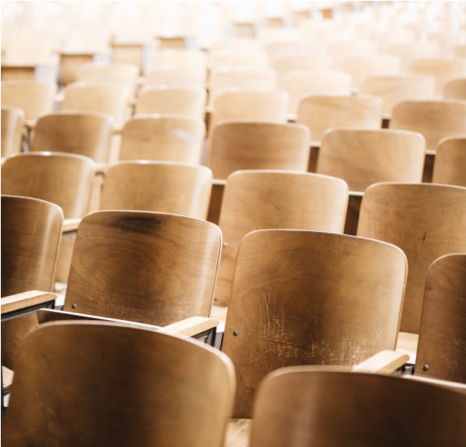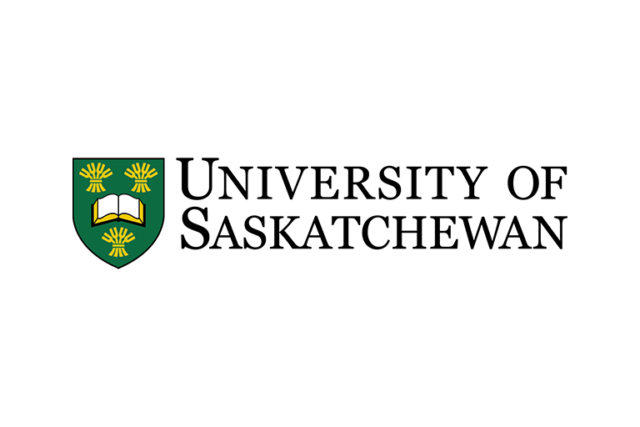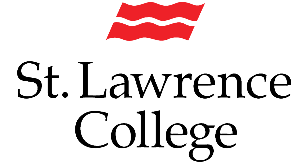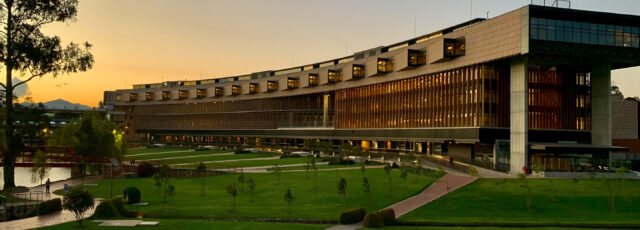
Research & Consulting for Higher Education
Canadian Higher Ed's Most Trusted Partner
Two decades. Over 100 client institutions.
We're here to help Canadian higher ed move forward.
We're here to help Canadian higher ed move forward.
Our Work
Let's Solve it Together
Postsecondary education is a sector dedicated to the pursuit of knowledge, so questions are no stranger to sector professionals. Answers, however, can be hard to find without a little outside help. That's where we come in.
Research
The data insights you need to form a foundation for your next program, plan, or decision.
Consulting
Expert guidance to help you understand your current situation, form your next evidence-based plan, and achieve your goals.
Hear From Our Past Clients
View Case Studies
Read the latest edition of…
Today's Top Ten
April 16, 2024
The University of British Columbia will add 778 new student seats over six years to technology-related programs, thanks to a $23M boost from the Government of British Columbia. This funding will add new seats to existing programs in the faculties of applied science, medicine, pharmaceutical sciences, and science at both the Vancouver and Okanagan campuses. It will also be used to launch two new programs: a Bachelor of Data Science in Vancouver and a Master of Science in Biotechnology in Okanagan. “This investment not only provides our students with exciting new education and career opportunities, but it also helps meet the demand for talent in B.C.’s rapidly growing tech and life sciences industry,” said UBC President Dr Benoit-Antoine Bacon.
Saskatchewan Polytechnic has received a $25M boost from the Joseph Alfred Remai Family Foundation toward its fundraising campaign for a new Saskatoon campus. In honour of the gift—which Sask Polytech says is the largest it has received from an individual—the Saskatoon campus will be named the Saskatchewan Polytechnic, Joseph A Remai Saskatoon Campus. “This is a gift that keeps on giving,” said Sask Polytech President Larry Rosia. “We graduate 5,000 students a year. You can only imagine in … 50 years from now the number of students that will benefit from the significant and heartfelt donation.”
CBC reporter Kate Rutherford has penned an article on the impact that the end of public-private partnerships (PPPs) will have on colleges in northern Ontario. Cambrian College President Kristine Morrissey said that while the Sudbury campus is facing a smaller reduction than it initially feared, it will experience revenue loss as its partnership with Hanson College in Brampton winds down. This will reduce the college’s revenue by about $25M each year. Northern College will phase out a partnership with Pures College in Midland and Scarborough, which will reduce Northern’s revenue by about $30M a year or a third of the college’s budget. Northern President Mitch Dumas said that the college will make adjustments and that “some part-time positions may not be required.”
A recent report has brought to light the low amount of research that has been conducted on Quebec’s student housing. Institut national de la recherche scientifique assistant professor Nick Revington reviewed current research on student housing in the province and argued that more research on the topic needs to be completed, ideally with the Government of Quebec’s involvement. In particular, Revington pointed to the need for Quebec-wide studies that gather data on students, socio-economic and socio-demographic characteristics, academic success, work-family-study balance, and work. Since nearly 70% of students live in the private rental market, Revington also noted that questions such as affordability, availability, and vacancy rates are also relevant.
In a recent opinion piece for The Conversation, Athabasca University scholars Jason Foster, Bob Barnetson, and Susan Cake discuss the challenges associated with bargaining processes between public sector workers in Alberta and their employers. Unions representing workers from almost every public service are currently in or will soon begin the bargaining process. Foster, Barnetson, and Cake explain that, through the Public Sector Employers Act, the AB finance minister can impose secret bargaining mandates on public sector employees. The authors discuss the obstacles that arose when secret mandates were used in 2020 and conclude that secret mandates in the future may lead to work stoppages.
Nipissing University recently celebrated the opening of the George and Helen Vari Simulation Centre, which will provide an immersive learning environment for nursing, social work, and criminal justice students. The centre features four hospital simulation suites with life-like manikins and two spaces equipped with immersive projection technology. “The Simulation Centre offers students a space to build competency in their skills, practice critical thinking, and make mistakes in a low-risk, supportive, and controlled environment to help prepare them for professional practice,” said Nipissing Associate Dean, School of Nursing Dr Karey McCullough. The development of the centre was made possible through donations from the George and Helen Vari Foundation.
McGill University has obtained an injunction to limit the scope of graduate teaching assistants’ ongoing picketing. According to the Montreal Gazette, Superior Court of Québec Judge Catherine Piché ordered members of the Association of Graduate Students Employed at McGill to not impede access or exit from McGill properties, limit its picketing to 10 people in certain locations, and abstain from activities that could lead to a “degradation or deterioration of McGill property.” The teaching assistants (TAs) have been on strike since March 25, advocating for pay raises, protections from overwork, and better healthcare. In a recent opinion article, McGill Sociology Professor Barry Eidlin called for McGill to negotiate a fair agreement with the TAs imminently, writing that unresolved contract issues run the risk of “poisoning the campus climate.”
In a recent article for Times Higher Education, Andrew Woon (Queen Mary University of London) explains how increasing numbers of academics are dealing with compassion fatigue. Woon explains that compassion fatigue consists of feelings of depersonalization and disconnection that diminish one’s ability to empathize with themselves or others. For educators, diminished job satisfaction and growing personal and work responsibilities are triggering this phenomenon and making it difficult for them to express compassion in the classroom, which in turn negatively impacts students. The author encourages to universities invest in compassion-related training, introduce self-assessment tools so that staff can monitor their satisfaction levels, and organize wellness and mindfulness activities to build more inclusive and empowering work environments.
The Kingston Learning Centre (KLC) College, a private career college with campuses in Kingston and Toronto, has reportedly closed. According to The Kingstonist, the college has faced financial difficulties and was unable to meet payroll for staff and faculty in February 2024. After a faculty walkout and class cancellations, the college reportedly issued a notice to students stating: “we regret to inform you that we must close the college doors due to unpaid wages.” The college offered a variety of career-oriented programs.
Members from the xʷməθkʷəy̓əm (Musqueam), Sḵwx̱wú7mesh (Squamish), and səlilwətaɬ (Tsleil-Waututh) Nations recently visited Vancouver Community College and held a traditional ground blessing to prepare for the construction of the Centre for Clean Energy and Automotive Innovation. The ceremony honoured the history of the land and included a traditional song, land acknowledgements, and ground blessings from the three host nations. “Our collective blessing of the grounds for the new building at VCC symbolizes much more than the start of construction — it signifies a deep recognition of our shared past and a collaborative step towards a sustainable future,” said Tsleil-Waututh Nation Elder Carleen Thomas.
Indigenous Top 10
April 3, 2024
The Simcoe County District School Board (SCDSB) and Georgian College have signed a memorandum of understanding to bring the college’s Indigenous learning virtual reality (VR) program to students at Regent Park School. Students who take part in the program can learn about the Ojibwe language and culture in VR. Regent Park teacher Laurie Smith said that VR gives students the opportunity to interact using the language in real-life settings. “It’s been incredible as an educator to use the VR headsets because it’s fostering different inter-cultural understanding between non-Indigenous and Indigenous students,” said Smith. Both partners hope to expand the program: SCDSB intends to bring the programming to other schools in its district, while Georgian is in talks with other school boards. “Learning the language is hard. It really is, and the way youth learn today is not the way that they learned 30 years ago. So to entice them, you have to create learning that is fun,” said Georgian Indigenous Studies programming coordinator Michele O’Brien.
Champlain College Saint-Lambert recently launched a pilot project to offer Kanien’kéha language classes to students in the Indigenous Student Ambassadors (ISA) program. The idea was sparked after students said they would like to take part in language classes. Champlain alumni Iekenhnhenhawi Alexa Montour was hired to teach weekly classes to a group of current students and recently graduated ISA members. Classes take place in an off-campus space, which Champlain’s Indigenous Student Life Counsellor Jennifer Kanerahtorónkwas Paul explained helps to make students feel more comfortable and fosters camaraderie within the group. Paul said that most students in the class are not fluent speakers. “We’re all sponges, we’re trying to absorb as much as we can,” said Paul. “Our language is definitely in that pivotal stage where we want to keep it alive through revitalization.”
Students from Shoal Lake 40 First Nation’s Harvey Redsky Memorial School have launched a Shoal Lake 40 merchandise line to raise awareness about their community’s role in Winnipeg’s drinking water. Grade 6-8 students designed reusable water bottles, tumblers, and stickers that feature QR codes leading to a website with information about the community’s history and the origin of Winnipeg’s drinking water. While the initiative was initially started to raise funds for a year end trip, students have continued the project to raise awareness about the origin of Winnipeg’s drinking water. The project has given students a way to develop their entrepreneurial skills, learn about money, and raise funds for the school’s Future Business Leaders Project. Red River College Polytechnic President Fred Meier said that the polytechnic has bought decals for each of its water refill stations. “The important part of that is making sure that every time our students, our staff and others are refilling the water, they understand what the source of the water is,” said Meier.
Nunavut Tunngavik Inc’s Board of Directors recently announced the allocation of funding towards several initiatives related to Inuit early learning and childcare. NTI has allocated $15M to Qikiqtani Inuit Association to construct three daycares in the Qikiqtaaluk. $1.38M has been allocated to the Inunnguinirmut Tukimuattittijiit working group. The group will use the funds to explore options to transform Inuit-led and Inuit-delivered early childhood services and to evaluate the use of funding to govern the Indigenous Early Learning and Child Care system. The NTI Board also approved the Nunavut Inuit Post-Secondary Education Program Policy at this meeting. The policy will support the move toward the implementation of the National Inuit Post-Secondary Education Strategy.
In an article for The Conversation, University of Victoria scholars Loren Gaudet and Lydia A I Toorenburgh discuss how they developed a first-year university writing course for Indigenous students. The authors explain that the course was built around a key core learning outcome: Feelings of belonging among students. As such, the course provided a “homeroom-style class” for Indigenous students, offering students essential information about navigating both scholarly writing and academic life at UVic. Gaudet and Toorenburgh intentionally fostered community-building by bringing in representatives from Indigenous-specific supports and adopting anti-oppressive grading practices. The authors share the positive feedback from students, including one student who said that the course provided a “very safe space” for them.
University of New Brunswick education students are preparing to become teachers who can promote reconciliation and decolonization with a course called Indigenous Education. The course includes a sweetgrass smudging ceremony, instruction on how to be a good treaty partner, and information about the issues facing Indigenous people in Canada. Students in the course participate in on-the-land learning with Wabanaki Elders, where they acquire the knowledge and insight they will need to promote reconciliation and decolonization in their future workplaces. Students will combine their learning with hands-on learning opportunities where they will serve Indigenous communities through activities such as planting trees and sweetgrass or working on the Wabanaki longhouse at UNB’s Fredericton campus. The course aims to help them develop the skills needed to design curriculum and consult with Indigenous communities and Elders. “Our goal is to prepare them to be the changemakers of the curriculum in their schools and involve Indigenous communities,” said UNB associate professor Juan Rodriguez.
Iroquois Ridge High School in Oakville will be undergoing a renaming process after the Halton District School Board (HDSB) received an anonymous complaint that the word “Iroquois” is a “colonial settler term for the Haudenosaunee and seen as a derogatory term,” reports National Post. HDSB manager of communications and engagement Heather Francey said that “to avoid perpetuating further harm,” trustees would not be discussing the school’s current name. Some community members are opposing the decision and questioning a perceived lack of consultation with the school community and the local Indigenous community. Several Haudenosaunee community members spoke about their perspective on the name, including Elder Grandmother Renee Thomas-Hill, who said she understood that the word referred to a kind of messenger. “I would really prefer that they keep their name because that’s history. It talks about the land,” said Thomas-Hill. “When you say Iroquois, because it’s not just one word. It’s a way of life.” According to Village Report, a petition has been started arguing for the school to keep its name.
The University of Alberta’s Supporting Indigenous Language Revitalization (SILR) initiative has launched a new resource for Indigenous language revitalization. Towards Indigenous Language Revitalization: An Informative Resource highlights the significance of Indigenous language learning and includes key information such as dialects and language structures, oral traditions, and the importance of collective effort. The resource is designed for use in several different contexts: Educators, for example, are encouraged to use the resource when evaluating, creating, or improving educational programs; while postsecondary analysts and policy developers can use the resource to identify practical approaches to support revitalization efforts. “[W]e wanted to provide an abundance of information so that anyone looking at language learning would be inspired, and able to see themselves in this resource as learners, developers and advocates,” said UAlberta SILR Executive Director Pamela McCoy Jones.
Lakehead University celebrated the renaming of its Indigenous resource centre Nanda Gikendan Gamik, which means “Seek to Know, Seek to Learn Place.” The centre—which is located in the library—offers Indigenous students a welcoming space that is centred around Indigenous knowledge. Students are able to access a variety of resources at the centre: one unique feature of Nanda Gikendan Gamik is its ribbon skirt lending library. Lakehead’s vice provost of Indigenous Initiatives Denise Baxter had students in an Indigenous Learning class design and sew ribbon skirts for others to borrow in the same way they may borrow a library book. Baxter said that the project taught students not only sewing skills, but about reciprocity and responsibility. “We wanted to make sure that we are creating as much opportunity for students to engage in their cultural practice while they’re at school because many of them are away from home,” Baxter said. “Really thinking about: how at Lakehead University do we make this their community as well?”
As spring begins, several school grounds have played host to Pow Wows. At the postsecondary level, schools such as Conestoga College, Lakehead University, Lambton College, Trent University, and the University of Lethbridge hosted Pow Wows on their campuses. The events at Conestoga, Lakehead, and Trent attracted spectators and participants from across their regions and featured crafts and artisans, guest speakers, and/or a sacred fire in addition to traditional music and dancing. ULethbridge hosted a “mini powwow and dance demonstration” as part of Indigenous Awareness Week in March. Lambton’s Pow Wow will also feature dancers, drumming and singing, and traditional arts and crafts. In British Columbia, Earl Marriott Secondary hosted a Pow Wow event that attracted participants from across the Pacific Northwest. “It’s a huge cultural celebration,” said Earl Marriott teacher Mark Figueira. “It brings people together… all in the spirit of reconciliation and doing that important work.”

The Perfect Fit.The First Time.
Simplify your hiring process or job search with Canada's leading postsecondary job board.














